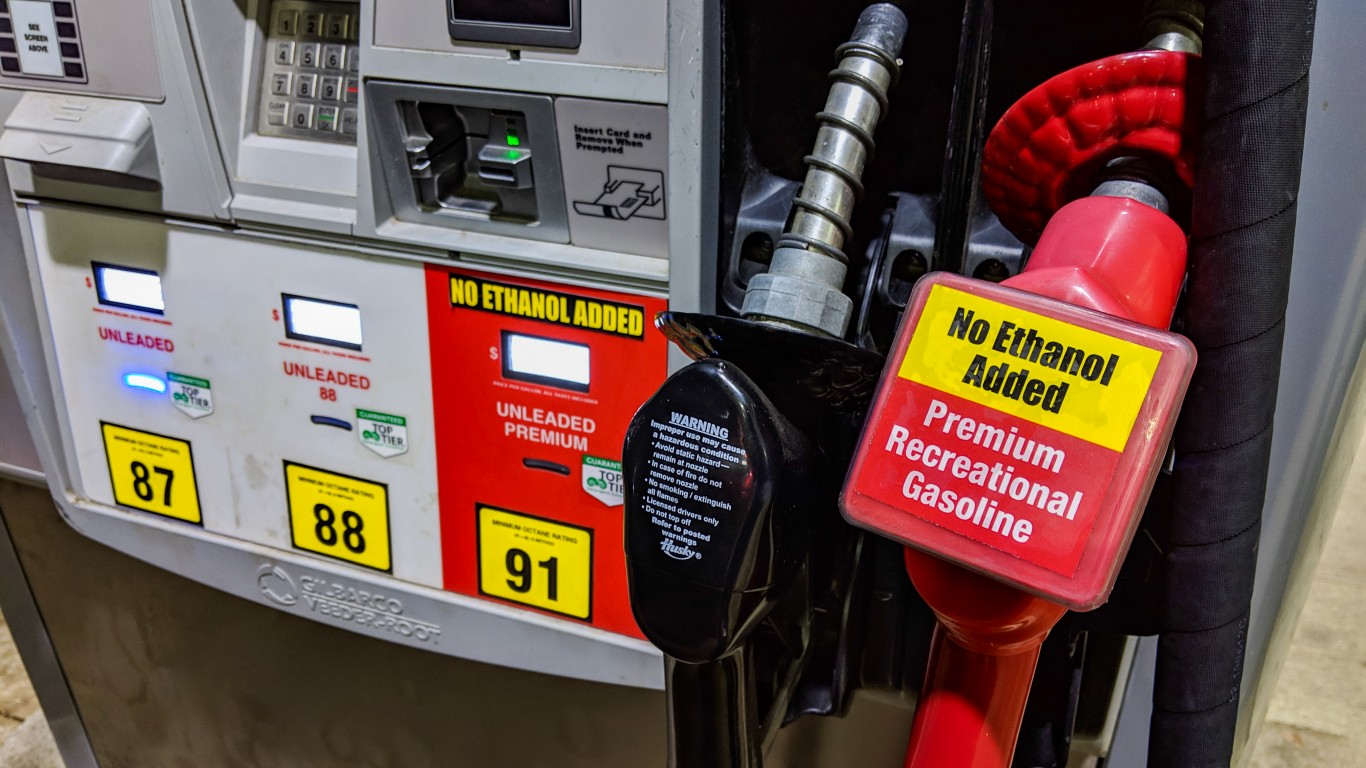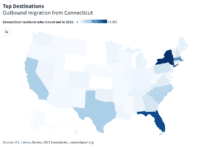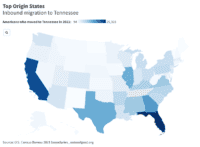
The stock and bond markets have been roiled recently, and the public’s trust in the current administration’s handling of the economy was damaged by a remarkable surge in inflation. Prices of many household items are sharply increasing, and the price of fuel oil is soaring.
The rise in consumer prices has been particularly surprising because, for a decade, prices have risen by less than 2% in some years. The consumer price index rose by 7.5% in January, compared to the same month last year. That was the largest increase since February 1982.
The Federal Reserve has stated it will raise interest rates as many as four times this year in an attempt to bring down inflation. Many experts believe this will be too little too late.
Harvard economist and former Treasury Secretary Larry Summers has been warning about the problem for months. He recently said, “It’s clear that inflation is the dominant economic problem as seen by the American people. It’s clear that inflation is significantly contributing to distrust in the institutions and to pessimism about the future.” The University of Michigan sentiment index dropped to a recent low in January. The primary worry among those polled was inflation.
As the year wears on, among the most substantial concerns is that consumers will pull in spending, which has been robust even during the COVID-19 pandemic. Price increases erode consumer spending, and this can sharply slow the economy. Consumer spending is about 70% of America’s gross domestic product.
The efforts of the Federal Reserve will result in higher interest rates across a number of areas, including mortgage rates. Historically low rates have helped drive the extraordinary rise in home prices. That, in turn, has increased home equity, which is a major part of the net worths of many people. (This is the city where people are making the most money selling homes.)
Unfortunately, there is a school of thought that high inflation may not end for months, and perhaps much longer.
24/7 Wall St. reviewed the recent Bureau of Labor Statistics consumer price index report to find the household items with the highest inflation in January. Prices of the items here increased by more than 10% last month compared to January 2021.
Among the shocking surge of prices in January were the cost of fuel and new and used cars, which rose as much as 40% and more. The prices of furniture and food also rose sharply. (With car prices increasing sharply, these are the fastest selling cars in America right now.)
Click here to see the price of this household item is soaring

42. Oranges, including tangerines
> Price increase, Jan. 2021 to Jan. 2022: +10.2%
[in-text-ad]
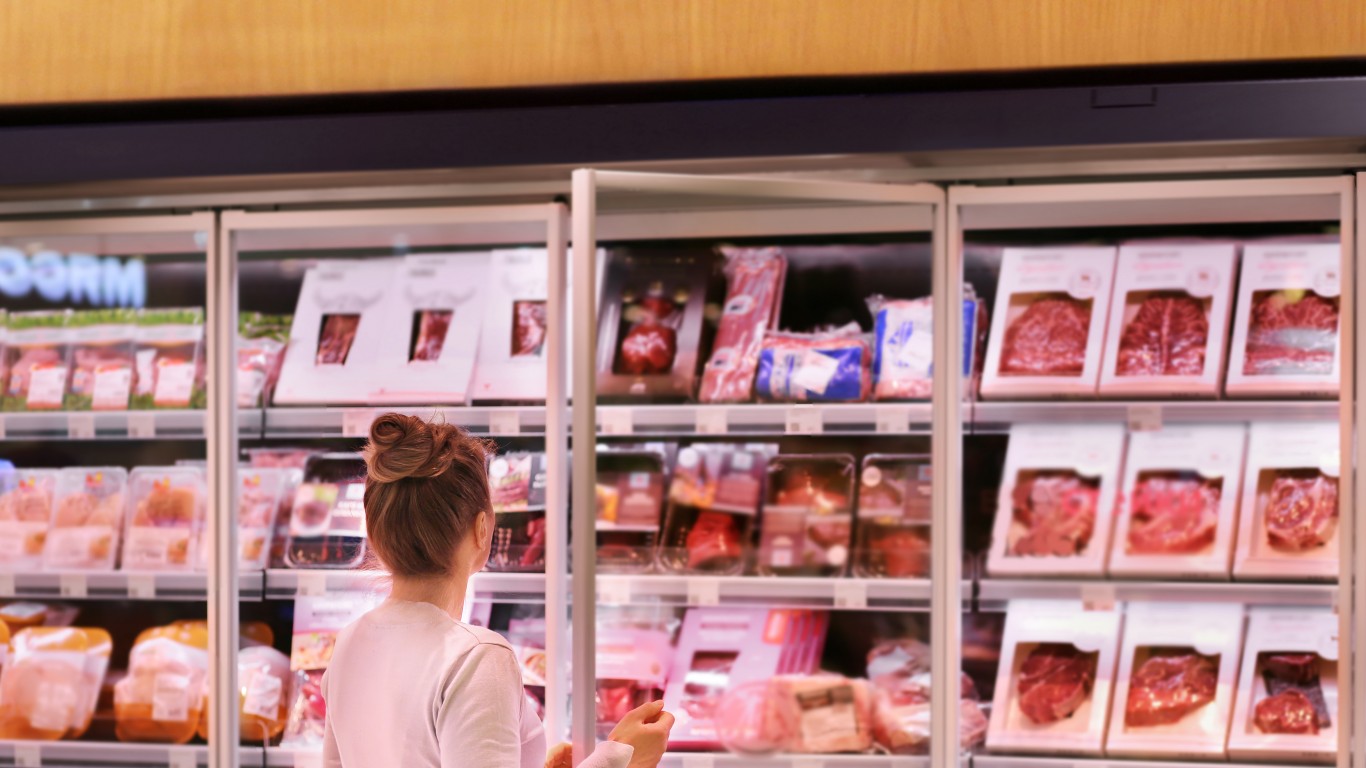
41. Ham, excluding canned
> Price increase, Jan. 2021 to Jan. 2022: +10.3%
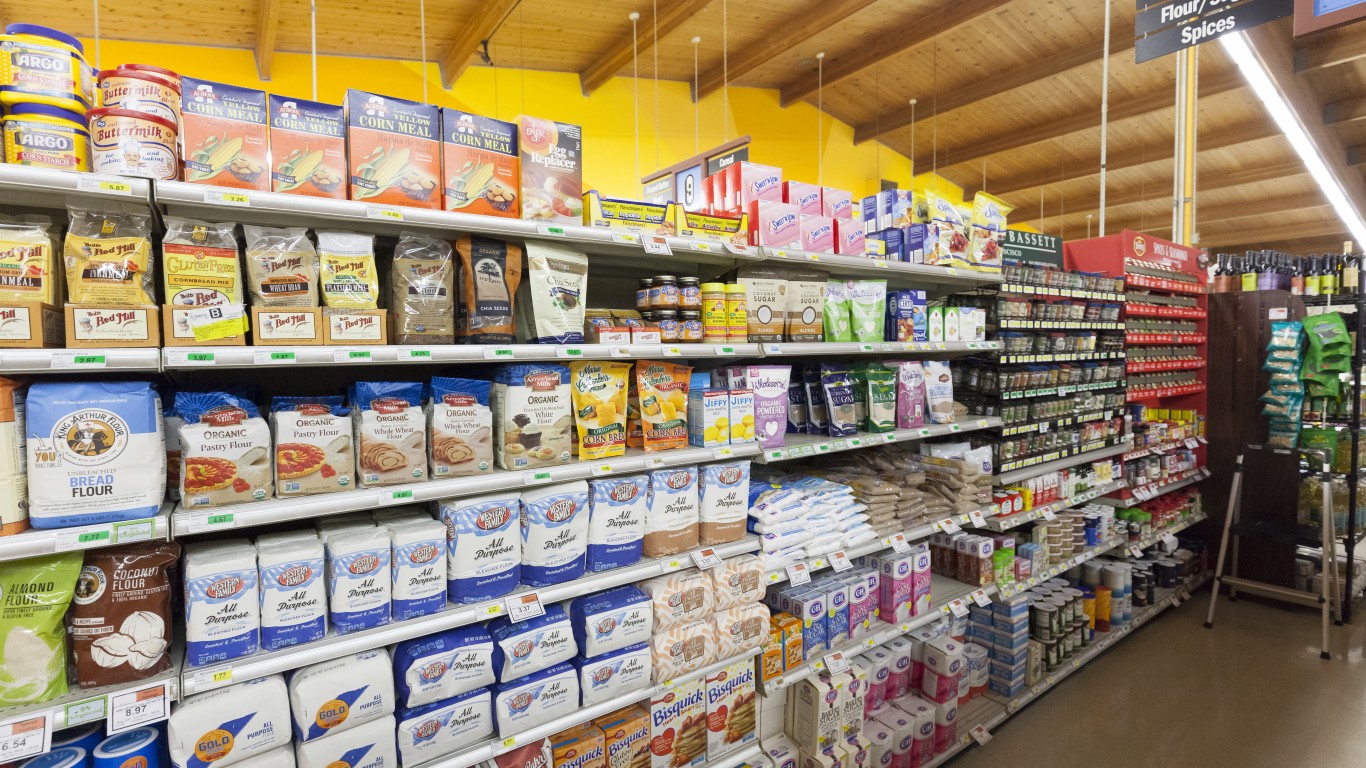
40. Flour and prepared flour mixes
> Price increase, Jan. 2021 to Jan. 2022: +10.3%

39. Sports vehicles including bicycles
> Price increase, Jan. 2021 to Jan. 2022: +10.5%
[in-text-ad-2]

38. Citrus fruits
> Price increase, Jan. 2021 to Jan. 2022: +10.6%

37. Electricity
> Price increase, Jan. 2021 to Jan. 2022: +10.7%
[in-text-ad]

36. Fats and oils
> Price increase, Jan. 2021 to Jan. 2022: +10.7%
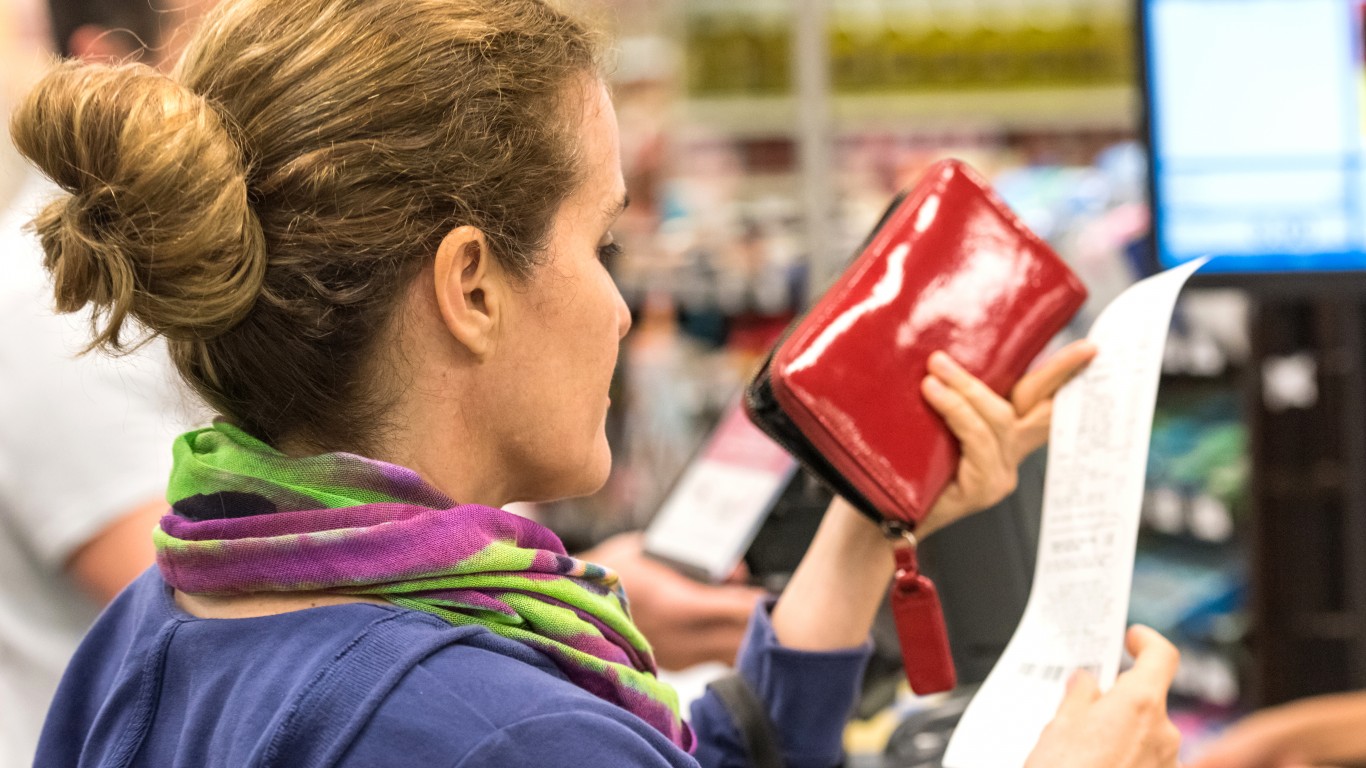
35. Admissions
> Price increase, Jan. 2021 to Jan. 2022: +10.8%

34. Motor vehicle body work
> Price increase, Jan. 2021 to Jan. 2022: +10.8%
[in-text-ad-2]

33. Women’s dresses
> Price increase, Jan. 2021 to Jan. 2022: +11.1%

32. Women’s outerwear
> Price increase, Jan. 2021 to Jan. 2022: +11.1%
[in-text-ad]
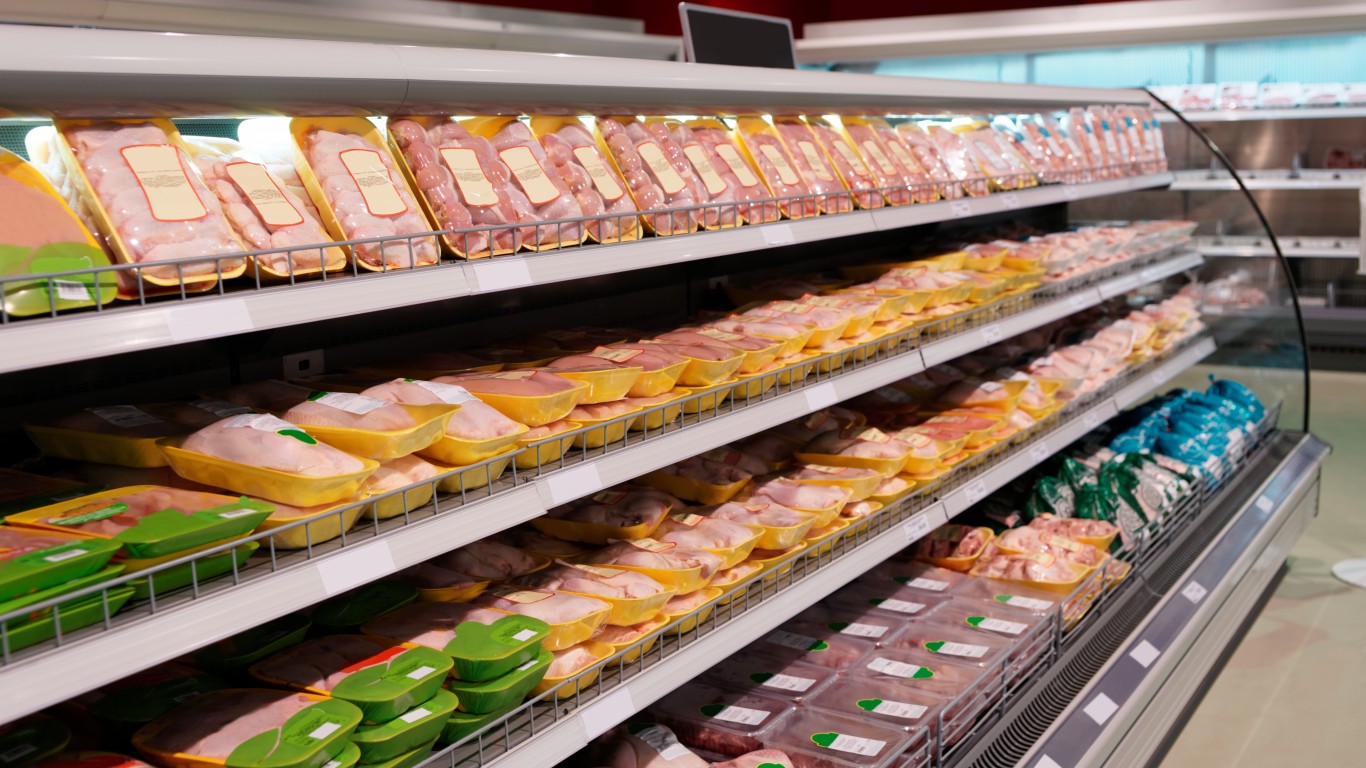
31. Fresh and frozen chicken parts
> Price increase, Jan. 2021 to Jan. 2022: +11.6%

30. Commodities less food and energy commodities
> Price increase, Jan. 2021 to Jan. 2022: +11.7%

29. Outdoor equipment and supplies
> Price increase, Jan. 2021 to Jan. 2022: +11.9%
[in-text-ad-2]

28. New cars
> Price increase, Jan. 2021 to Jan. 2022: +12.0%

27. Breakfast sausage and related products
> Price increase, Jan. 2021 to Jan. 2022: +12.0%
[in-text-ad]

26. New trucks
> Price increase, Jan. 2021 to Jan. 2022: +12.1%

25. Crackers, bread, and cracker products
> Price increase, Jan. 2021 to Jan. 2022: +12.6%
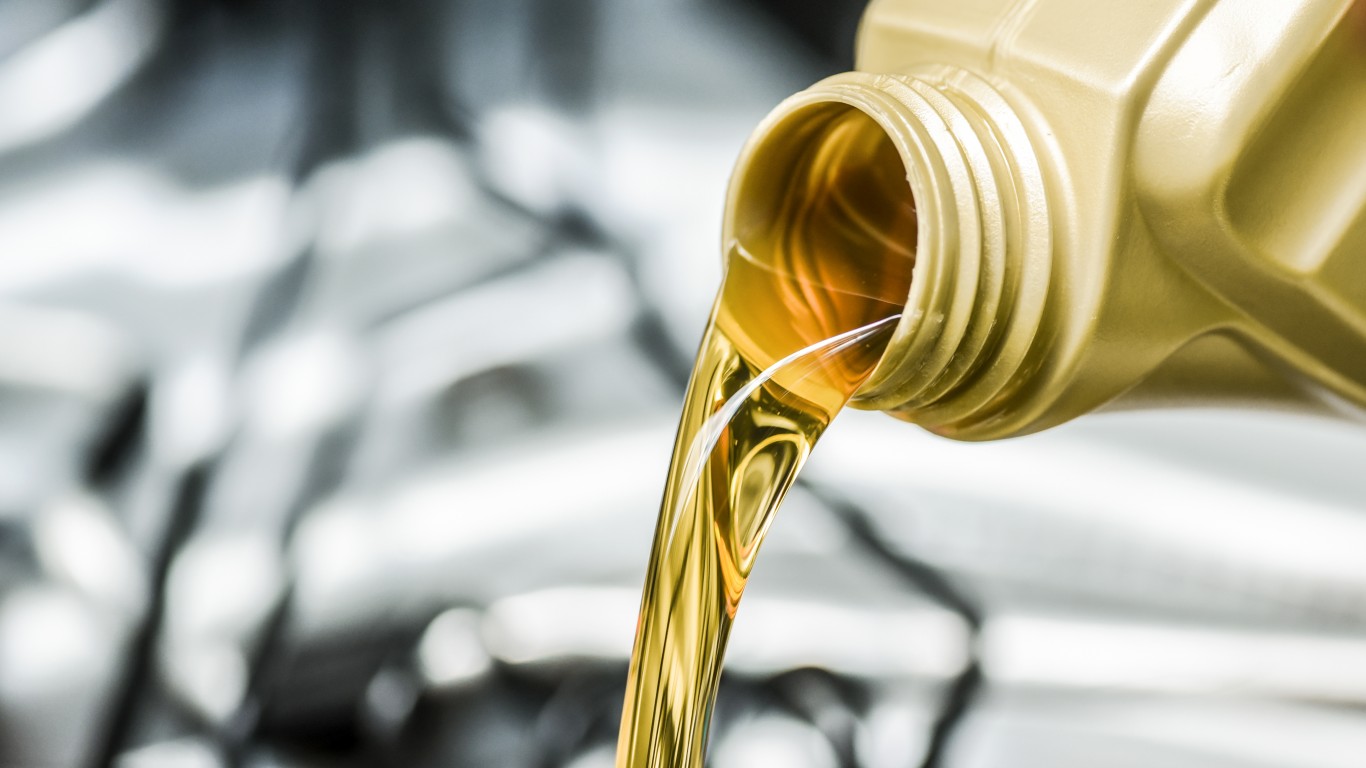
24. Motor oil, coolant, and fluids
> Price increase, Jan. 2021 to Jan. 2022: +12.7%
[in-text-ad-2]

23. Fresh fish and seafood
> Price increase, Jan. 2021 to Jan. 2022: +12.7%

22. Uncooked ground beef
> Price increase, Jan. 2021 to Jan. 2022: +13.0%
[in-text-ad]
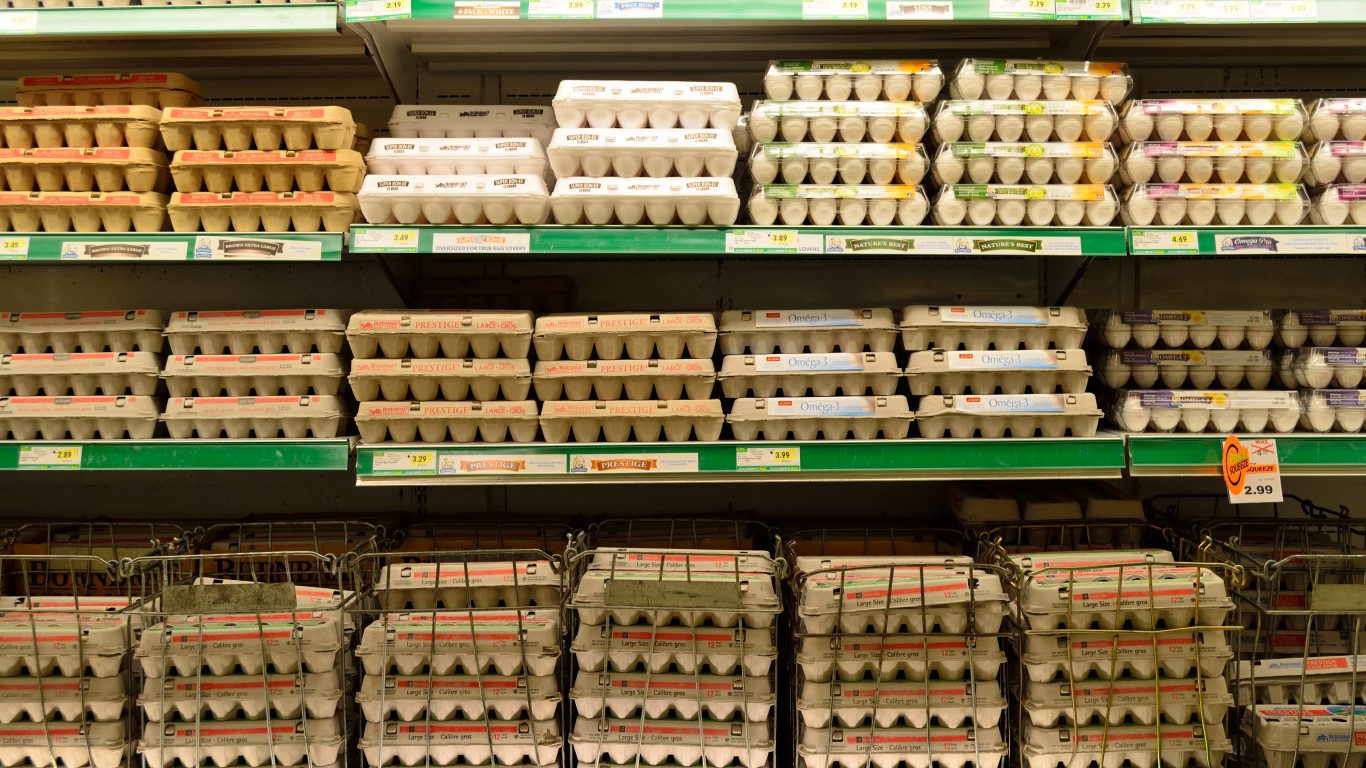
21. Eggs
> Price increase, Jan. 2021 to Jan. 2022: +13.1%

20. Men’s suits, sport coats, and outerwear
> Price increase, Jan. 2021 to Jan. 2022: +13.6%

19. Bedroom furniture
> Price increase, Jan. 2021 to Jan. 2022: +13.7%
[in-text-ad-2]

18. Checking account and other bank services
> Price increase, Jan. 2021 to Jan. 2022: +14.4%

17. Pork chops
> Price increase, Jan. 2021 to Jan. 2022: +14.5%
[in-text-ad]

16. Window coverings
> Price increase, Jan. 2021 to Jan. 2022: +16.2%

15. Furniture and bedding
> Price increase, Jan. 2021 to Jan. 2022: +17.0%

14. Uncooked beef steaks
> Price increase, Jan. 2021 to Jan. 2022: +17.1%
[in-text-ad-2]
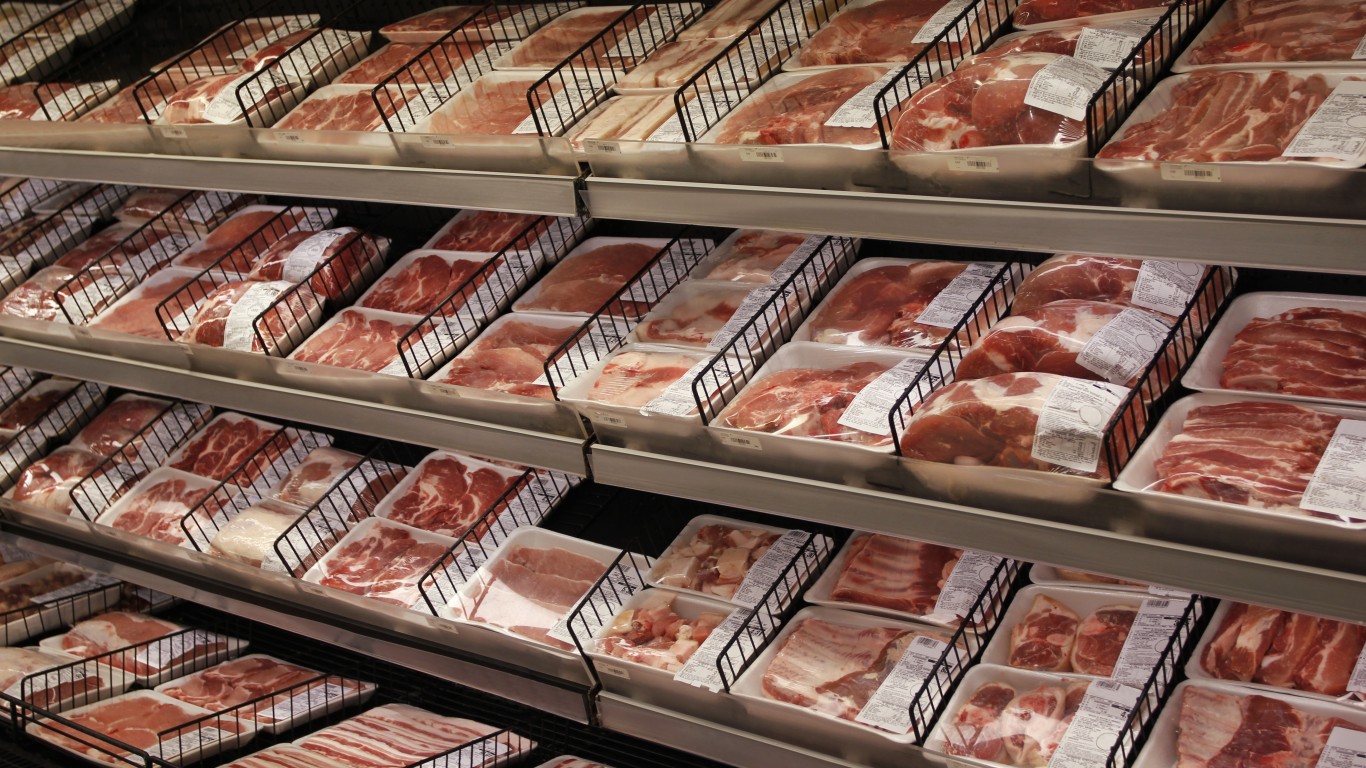
13. Bacon and related products
> Price increase, Jan. 2021 to Jan. 2022: +18.1%
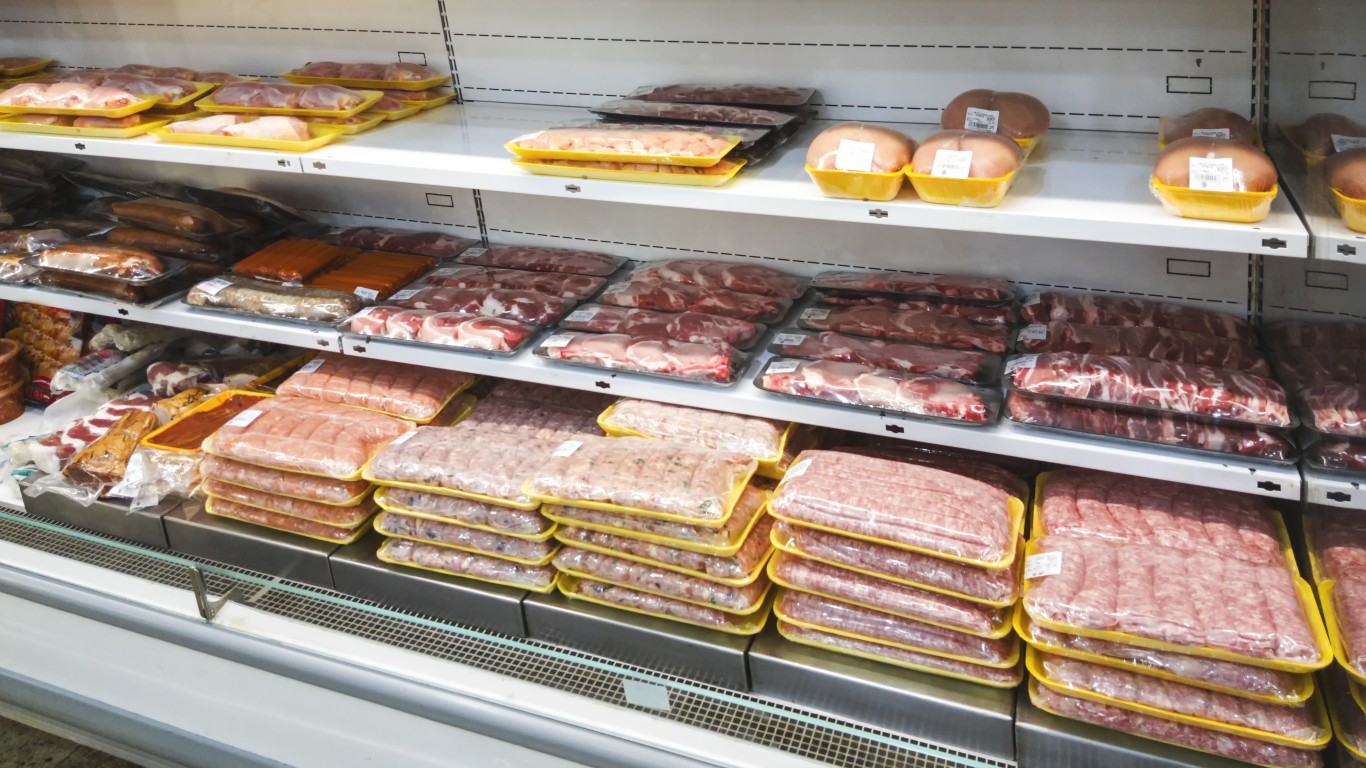
12. Uncooked beef roasts
> Price increase, Jan. 2021 to Jan. 2022: +19.2%
[in-text-ad]

11. Living room, kitchen, and dining room furniture
> Price increase, Jan. 2021 to Jan. 2022: +19.9%

10. Lodging away from home
> Price increase, Jan. 2021 to Jan. 2022: +20.5%

9. Propane, kerosene, and firewood
> Price increase, Jan. 2021 to Jan. 2022: +22.6%
[in-text-ad-2]

8. Transportation commodities less motor fuel
> Price increase, Jan. 2021 to Jan. 2022: +23.4%
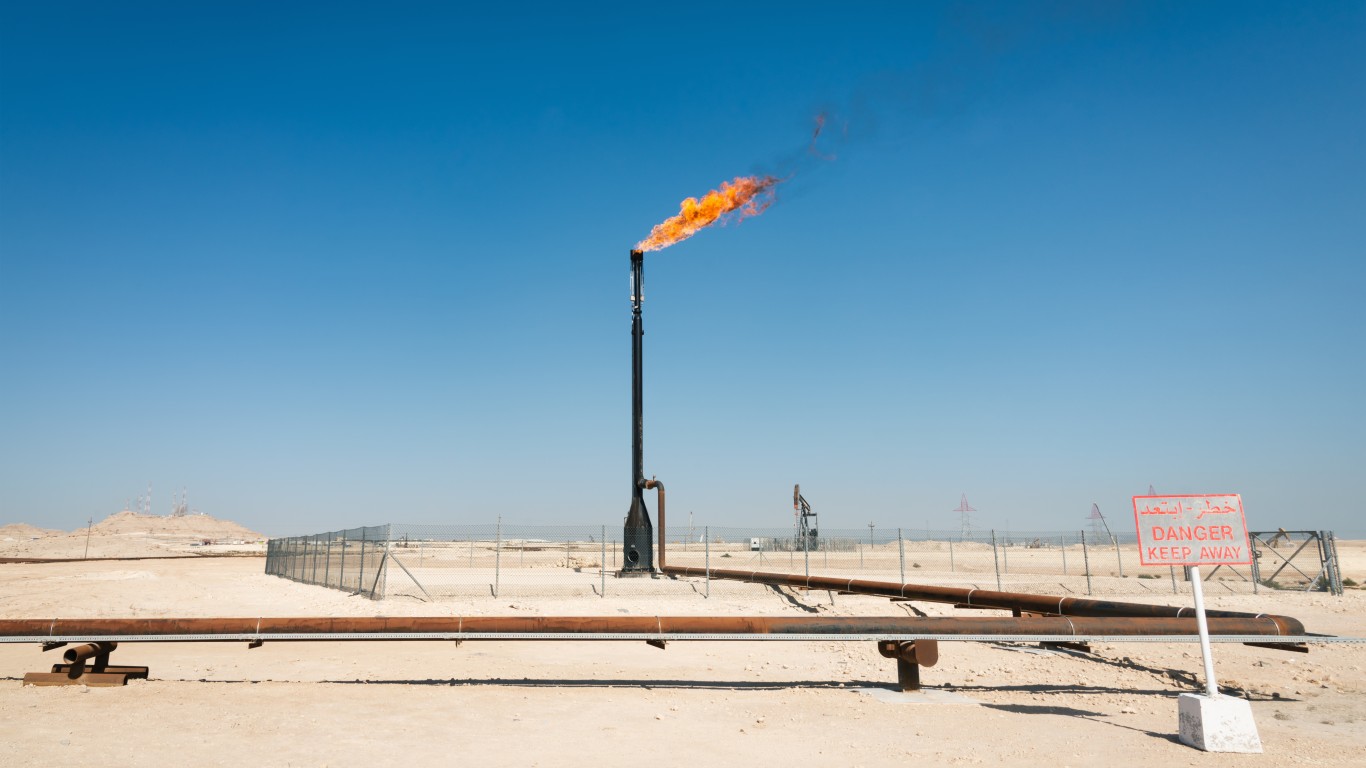
7. Utility (piped) gas service
> Price increase, Jan. 2021 to Jan. 2022: +23.9%
[in-text-ad]

6. Car and truck rental
> Price increase, Jan. 2021 to Jan. 2022: +29.3%
5. Gasoline, unleaded premium
> Price increase, Jan. 2021 to Jan. 2022: +35.2%
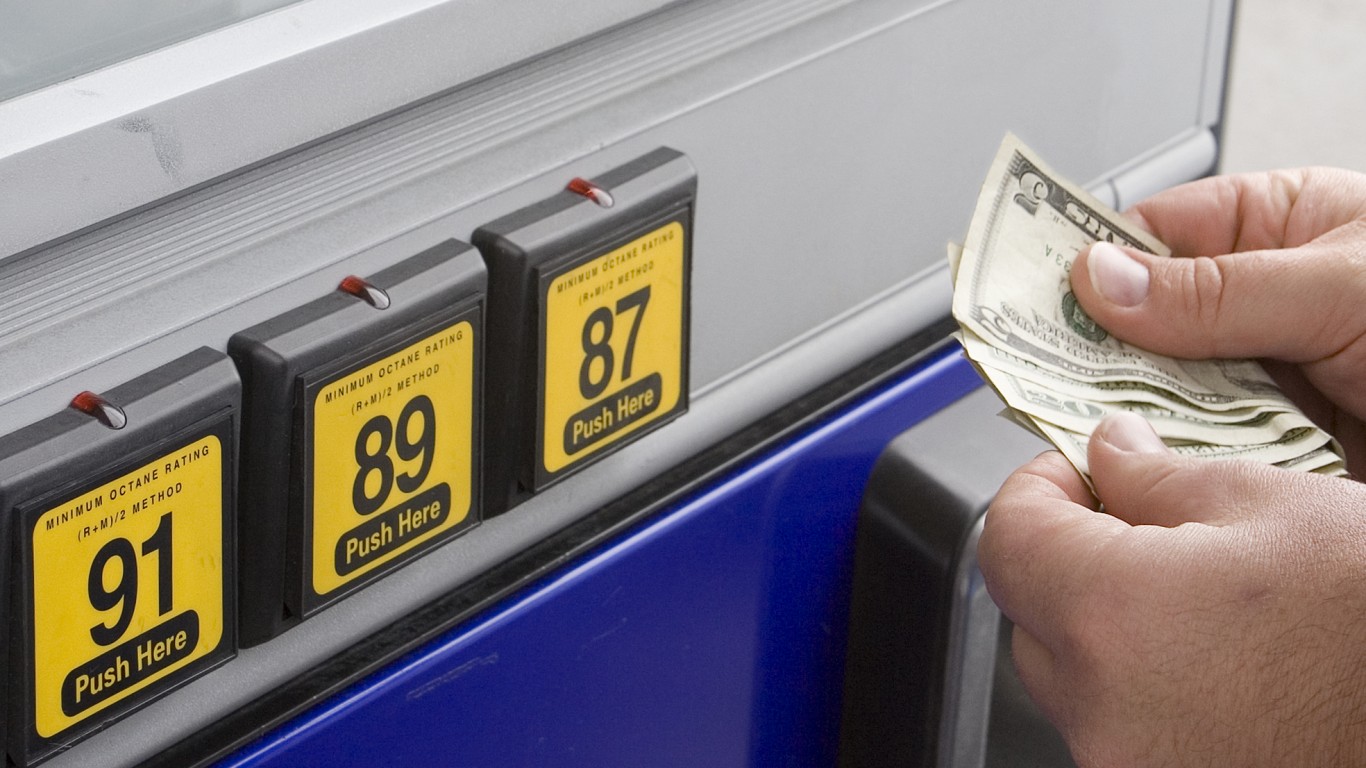
4. Gasoline, unleaded midgrade
> Price increase, Jan. 2021 to Jan. 2022: +37.1%
[in-text-ad-2]

3. Used cars and trucks
> Price increase, Jan. 2021 to Jan. 2022: +40.5%

2. Gasoline, unleaded regular
> Price increase, Jan. 2021 to Jan. 2022: +40.8%
[in-text-ad]

1. Fuel oil
> Price increase, Jan. 2021 to Jan. 2022: +46.5%
Thank you for reading! Have some feedback for us?
Contact the 24/7 Wall St. editorial team.
 24/7 Wall St.
24/7 Wall St. 24/7 Wall St.
24/7 Wall St.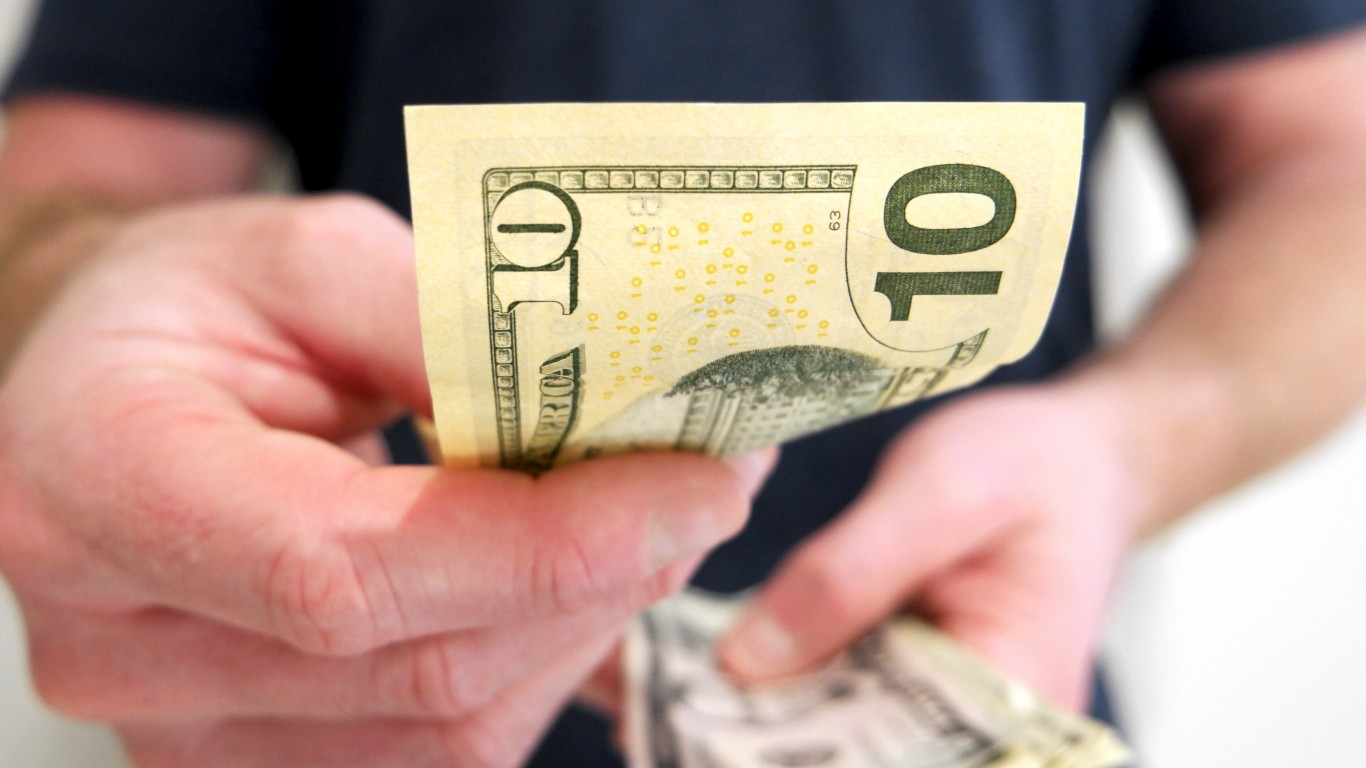 24/7 Wall St.
24/7 Wall St. 24/7 Wall St.
24/7 Wall St.